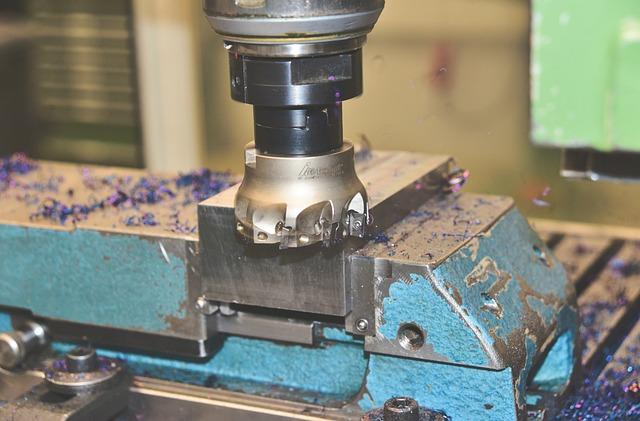In a important move aimed at bolstering health infrastructure across the continent, the African Export-Import Bank (Afreximbank) and the Africa Centres for Disease Control and Prevention (Africa CDC) have announced a groundbreaking $2 billion commitment to enhance the manufacturing of health and pharmaceutical products in Africa. This partnership underscores a pivotal shift towards self-sufficiency in healthcare,fostering local production capabilities that can respond effectively to the continent’s pressing health challenges. By channeling ample financial resources into this initiative, both organizations aim to reduce Africa’s reliance on imported medical supplies, thereby strengthening the continent’s resilience against future health crises. As global health disparities become increasingly evident, this landmark pledge marks a proactive step towards a more sustainable and robust health ecosystem in Africa, promising to enhance access to vital medicines and improve public health outcomes across the region.
Afreximbank and Africa CDC unite for $2 Billion Health Initiative
Afreximbank and the Africa Centres for disease Control and Prevention (Africa CDC) have teamed up to establish a landmark $2 billion facility aimed at bolstering the continent’s health and pharmaceutical manufacturing capabilities. This strategic initiative responds to the pressing need for self-reliance in health product production,which has been emphasized especially during global health crises. The investment will focus on strengthening local production capacities, ensuring that African countries can mitigate the impact of future pandemics and health emergencies through enhanced access to essential medicines and vaccines.
The new health initiative underscores several key goals, including:
- Enhancing Manufacturing Capacities: By providing financial support to local manufacturers, the initiative seeks to expand and modernize production facilities.
- Promoting research and Development: encouraging innovation in the pharmaceutical sector to create homegrown solutions for Africa’s unique health challenges.
- facilitating Regional Collaboration: Fostering partnerships among African nations to ensure a coordinated response to health threats.
| Focus Area | expected Outcomes |
|---|---|
| manufacturing Capacity | Increased availability of local health products |
| R&D Initiatives | innovative solutions tailored for Africa’s health needs |
| Regional Collaboration | Stronger and faster responses to health crises |

Strengthening Pharmaceutical Manufacturing: A Strategic Move for Africa
The recent commitment of a $2 billion facility by Afreximbank and Africa CDC marks a significant milestone in bolstering the continent’s pharmaceutical manufacturing capabilities. This strategic investment aims to reduce africa’s dependency on imported medicines and enhance self-sufficiency in health product production. With the global supply chain disruptions highlighted during the pandemic, this initiative underscores the urgency of establishing robust local manufacturing ecosystems. By prioritizing key sectors, this partnership is poised to revolutionize healthcare access across the continent.
To effectively implement this vision, several strategic areas will be prioritized:
- Infrastructure Development: Investing in state-of-the-art manufacturing facilities and technology to meet international standards.
- Skills Training and Capacity Building: equipping local talent with the necesary skills to innovate and excel in pharmaceutical production.
- Regulatory Harmonization: Streamlining regulations to ensure swift approval processes and compliance with global practices.
In addition, collaborative efforts will focus on promoting public-private partnerships that facilitate knowledge transfer and investment.This approach not only strengthens the local economy but also enhances the competitive edge of African manufacturers on the global stage.

The Role of Local Production in Enhancing Health Security
The importance of local production in strengthening health security cannot be overstated, particularly in a continent like Africa where dependency on foreign products can lead to vulnerabilities in times of crises.By investing in local health and pharmaceutical manufacturing, Africa not only aims to enhance its self-sufficiency but also to ensure faster and more reliable access to essential medical supplies.This initiative is crucial in addressing the persistent challenges of inadequate healthcare infrastructure and the relatively low levels of manufacturing capacity across many African nations. Local production can help mitigate risks posed by global supply chain disruptions and will enable countries to respond more effectively to public health emergencies.
Moreover, the partnership between Afreximbank and Africa CDC signals a commitment to fostering a robust ecosystem for health product manufacturing. This $2 billion facility will facilitate not only the production of vaccines and essential medicines but will also support key areas such as:
- Research and Development: Encouraging innovation in local healthcare solutions.
- Training and Capacity Building: Developing a skilled workforce in pharmaceutical manufacturing.
- Infrastructure development: Enhancing facilities for safer and more efficient production processes.
To illustrate the meaning of this strategy, consider the following table that outlines the anticipated benefits of local production:
| Benefit | Description |
|---|---|
| Cost Reduction | Lower costs associated with imports and logistics. |
| Job creation | increased employment opportunities in the manufacturing sector. |
| Supply Chain Resilience | Reduction in dependency on global supply chains for critical health products. |

Investment Opportunities in Africa’s Health Sector: A Call to Action
The recent commitment of a $2 billion facility by Afreximbank and Africa CDC marks a pivotal moment for africa’s health sector. This investment is set to accelerate the development of local manufacturing capabilities for health and pharmaceutical products across the continent. As countries face increasing pressures from global health challenges, the prospect for sustainable and self-sufficient health infrastructure has never been more critical. Key areas that will benefit from this initiative include:
- Vaccine Production: Enhancing local capacities to manufacture vaccines will mitigate reliance on external suppliers.
- Pharmaceutical Manufacturing: Expanding production of essential medicines to meet local demands and reduce costs.
- Research and development: Fostering innovation by supporting R&D initiatives tailored to African health needs.
This funding not only demonstrates a commitment to improving health outcomes but also invites private and public sector partnerships to join this transformative journey. By harnessing local expertise and resources, the continent can create a robust health ecosystem that empowers nations and enhances resilience against health crises. Key components of this initiative include:
| Component | description |
|---|---|
| Financial support | Direct funding to emerging health manufacturers. |
| Training Programs | Skill development initiatives for local workforce. |
| Infrastructure development | Investment in facilities and technology upgrades. |
With these focused areas of development, the health sector in Africa stands on the verge of significant transformation. Stakeholders are urged to align resources and expertise to create a collaborative framework that not only addresses current health challenges but also sets the stage for a healthier future for all Africans.
Recommendations for Effective implementation of the Funding Pledge
To ensure the accomplished deployment of the $2 billion funding pledge for health and pharmaceutical manufacturing in Africa, it is critical to adopt a multi-faceted approach. First and foremost, stakeholder engagement should be prioritized. engaging local governments, private sector players, and healthcare organizations will foster a collaborative surroundings where resources and expertise can be shared.Additionally, it is vital to establish clear interaction channels for disseminating information regarding project goals, progress, and accountability. This transparency will engender trust and collective ownership of the initiatives launched under this funding.
Moreover, investment in training and capacity-building programs within local healthcare systems is essential. support for educational initiatives can definitely help develop a home-grown workforce equipped with the necessary skills for pharmaceutical manufacturing. Establishing public-private partnerships can also enhance infrastructure and innovation. The utilization of a robust monitoring and evaluation framework will facilitate continuous feedback and adjustments to strategies. The ultimate goal is not only to enhance manufacturing capabilities but also to ensure that these advancements translate into improved health outcomes across the continent.

Future Implications for Public Health and Economic Growth in Africa
The commitment of Afreximbank and Africa CDC to establish a $2 billion facility for health and pharmaceutical manufacturing heralds a transformative era for the continent. This initiative aims to bolster local production of essential medicines and health products, significantly reducing dependence on imports. By facilitating investment in the pharmaceutical sector, this move is expected to generate numerous economic opportunities, including:
- Job Creation: An increase in manufacturing capabilities will lead to new job opportunities across various skill levels.
- Technological Advancements: The establishment of local manufacturing hubs will promote innovation in drug production technologies.
- Enhanced Access to Medicines: Improved local supply chains will ensure that essential medications are more accessible and affordable for the population.
Moreover, investing in public health infrastructure lays the groundwork for sustainable economic growth. The focus on strengthening health systems not only supports better health outcomes but also enhances the workforce’s productivity by minimizing the burden of disease. In this context, it is vital to explore the potential benefits brought by local pharmaceutical manufacturing:
| Benefit | Description |
|---|---|
| Self-Sufficiency | Reduced reliance on foreign suppliers for critical health products. |
| Economic Resilience | Mitigation of supply chain disruptions related to global events. |
| Market Growth | Growth of local industries leading to increased private sector investment. |
The Conclusion
the collaborative pledge of a $2 billion facility by Afreximbank and the Africa CDC marks a significant milestone in the advancement of health and pharmaceutical manufacturing across the continent. This initiative not only underscores the critical need for self-sufficiency in health resources amid global disruptions but also sets a transformative precedent for future investments in Africa’s healthcare infrastructure. By prioritizing local production capacities, this partnership seeks to enhance access to essential medical products and bolster the continent’s resilience against health crises. As Africa navigates the challenges of the 21st century, the commitment to strengthening its health systems through innovation and collaboration is a promising step towards a healthier and more self-reliant future for all Africans. Stakeholders across the industry will be closely watching for the outcomes of this ambitious endeavor, which could ultimately redefine Africa’s position in the global healthcare landscape.







